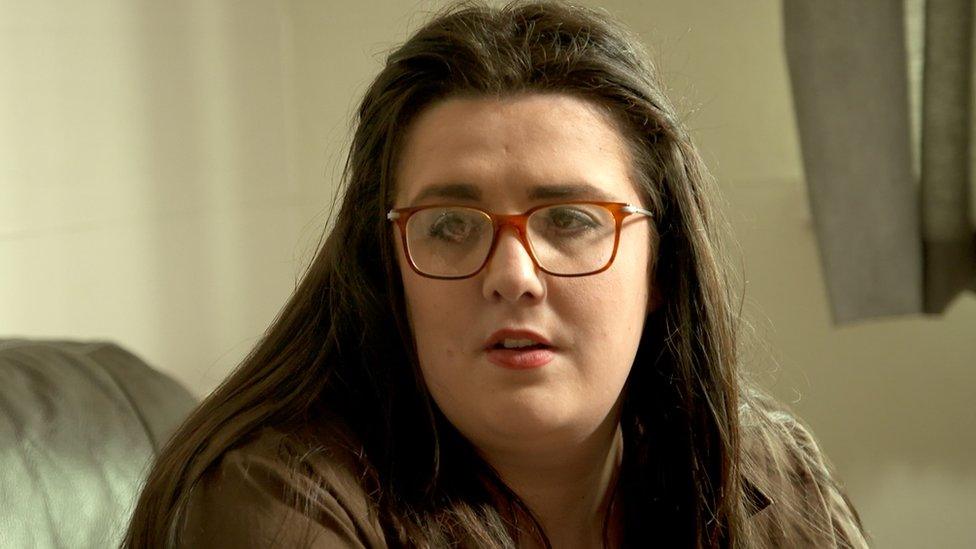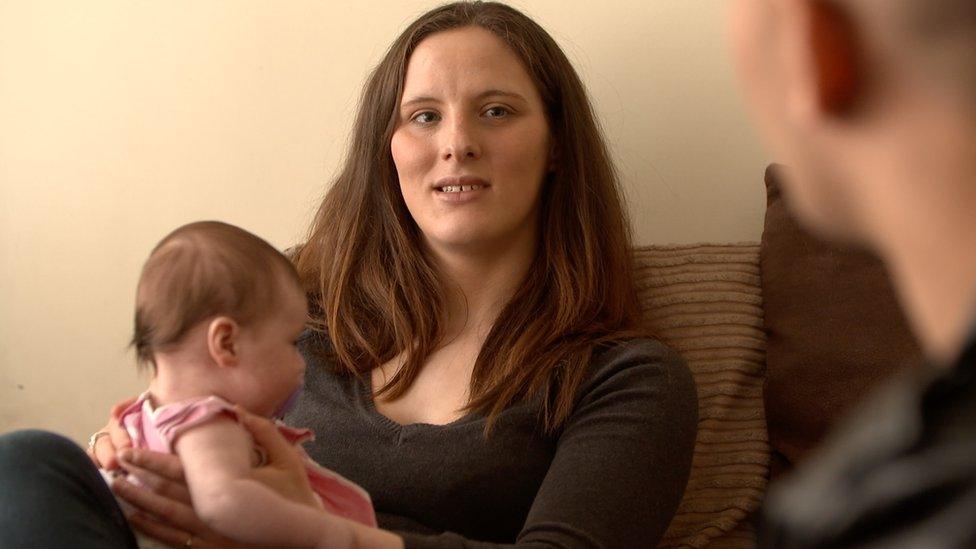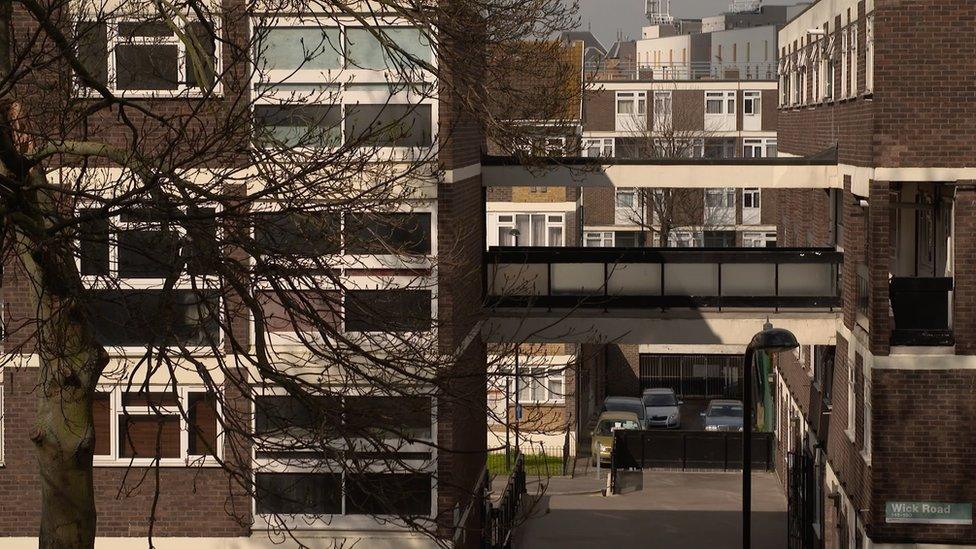Leaving care: The financial reality
- Published
Ashley John-Baptiste tells his story
For many people, moving on from a childhood spent in care can be hard. As some councils in England offer council tax relief to ease the transition for adult care leavers, BBC reporter Ashley John-Baptiste asks what difference it might make.
I remember the night I moved into my council flat. I've never been to prison, but it felt like I was starting some sort of sentence.
I'd been in care since I was a toddler. Throughout my childhood I was shunted across south London, between four foster families and a residential care home.
When I was 18, almost 10 years ago, my foster mum drove me to my flat in south east London and helped me move my stuff.
That first night, I slept on my mattress alone in a cluttered living room.
Every creak, every noise kept me up that night.
Waking up in my new council flat with my new independence was absolutely terrifying.
It wasn't freedom. I was lonely.
Tax relief
I had to sober up to the responsibilities of paying rent and bills - including council tax - without help. Despite these new adult responsibilities, I still felt like a kid.
I remember the toughest weekend, potentially of my life. I had 37p to live on. All I could afford was an onion.
That is the reality for many people who leave care.
But now some councils in England are trying to help young adults with the transition.
Seven councils - including Birmingham, Wolverhampton and Coventry - told care leavers this month they do not have to pay council tax until they are 22 or, in some cases, 25.
They have joined four authorities that already have a similar policy in place.
Cheshire East Council, which has approximately 240 care leavers, says the cost to the council will be approximately £17,000 every year.
Hammersmith & Fulham Council, which brought in the measure in December, said the cost was about £49,000 a year.
But will it make a difference?

Jodie's council tax debt reached £600 before she started repayments
Jodie Leigh, who lives in Grimsby, was taken into care when she was eight.
She left when she was 20 and says she had no idea how to go about paying council tax, bills or rent. Eventually, her bills began to stack up and with it, so did her debts.
"I was getting letters through the door. I was in denial. I thought if I didn't open them I wouldn't get them."
Jodie's council tax debt reached £600 - all before she started university. The debt was then passed to a debt collection company and she was threatened with bailiffs.
She has paid back half but she has a month to find the rest.
Vulnerable
Jodie, who is now 23, says scrapping council tax for young care leavers is a "brilliant idea" and will give them a chance to adjust to a life away from care.
"Their parents being the local authority, [care leavers] have not had to think about anything before - TV licence, gas, electric, phone bills and whatever else."
She understands why some might consider others to be more worthy cases than care leavers but she says: "Until you have walked in the shoes of a care leaver, then how do you know what that person's going through?
"They could be vulnerable in other ways as well as being a care leaver - mentally physically, you don't know the stories."

Tiffany says she was threatened with bailiffs
Tiffany Simcoe was taken into care on Christmas Eve when she was five years old.
She is now 23 and lives in east London with her two-month-old daughter.
Being placed with a foster family was "the most traumatising thing you could be put through at such a young age", she says.
"Nothing prepares you for being placed in a car and put outside someone's front door."
Tiffany moved into a council flat when she was a teenager and from the age of 21 was cut off from the local authority.
'Out of control'
"They officially said, 'That's it, we no longer need to be in contact with you. You've now hit that age when you can live by yourself independently'.
"There was not much preparation for that at all."
She has debts of £2,000, which have been passed to bailiffs.
"Council tax is probably the worst one. It just goes out of control."
Asked about the new measures being adopted by councils, she said: "It would be a case of one less bill, and that would be a weight off my shoulders."

The Children's Society says the move by the councils will help care leavers like Jodie and Tiffany.
Policy and campaigns director Peter Grigg says expecting some of the country's most vulnerable people to pay council tax days after leaving care is "setting them up to fail".
"This will make life easier for many young people making the move into independent living and we would urge more councils to follow suit," he added.
Privileged
Between moving into my flat and starting university, I had four months of independent living.
While my mates were enjoying their summer holiday and enjoying final moments with their families before starting university, I was overwhelmed with the isolation of leaving care.
A few years later I graduated from Cambridge with a 2:1.
In many ways I am "the one who got away" as a care leaver. I was privileged to have gained a degree and over time, form a support network of people who genuinely cared about my welfare.
However, many other care leavers are still faced with the grim reality of post-care life and are struggling without adequate support.
Watch the Victoria Derbyshire programme on weekdays between 09:00 and 11:00 on BBC Two and the BBC News Channel.